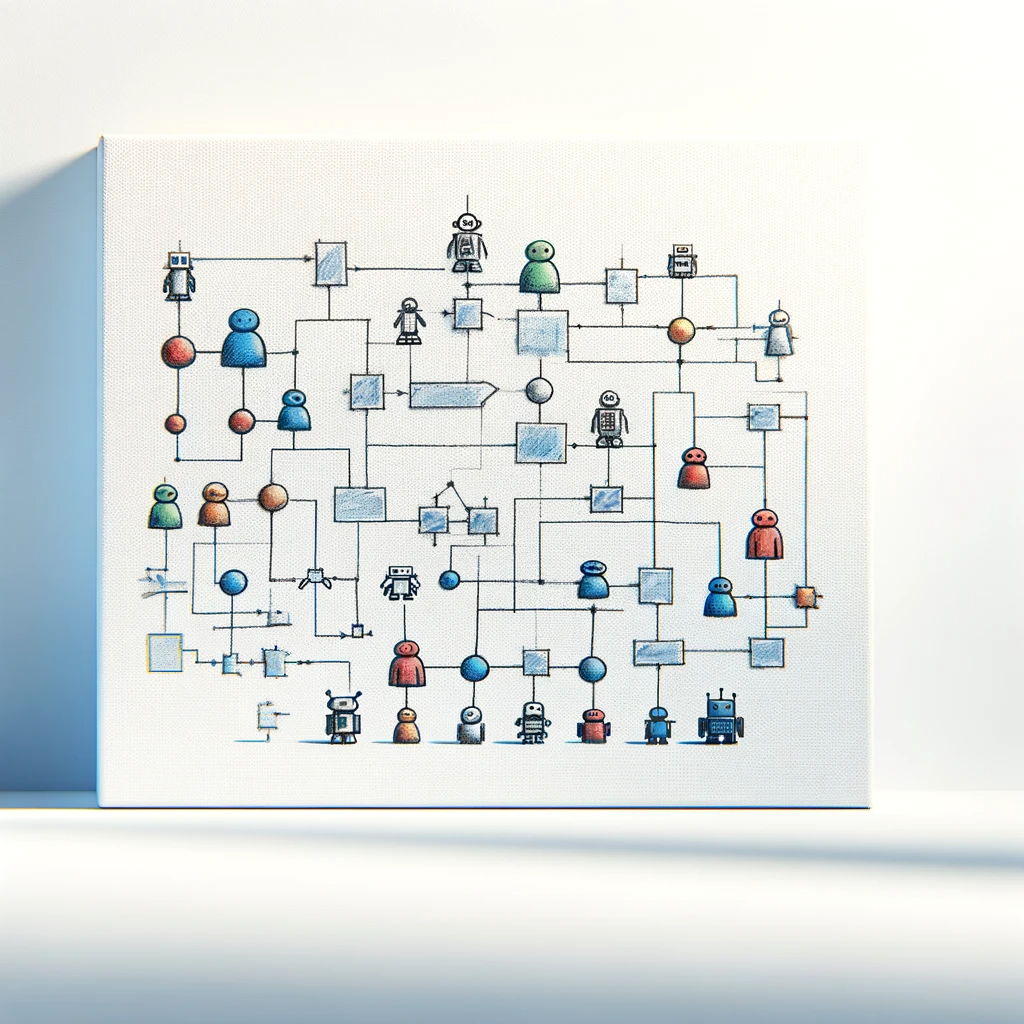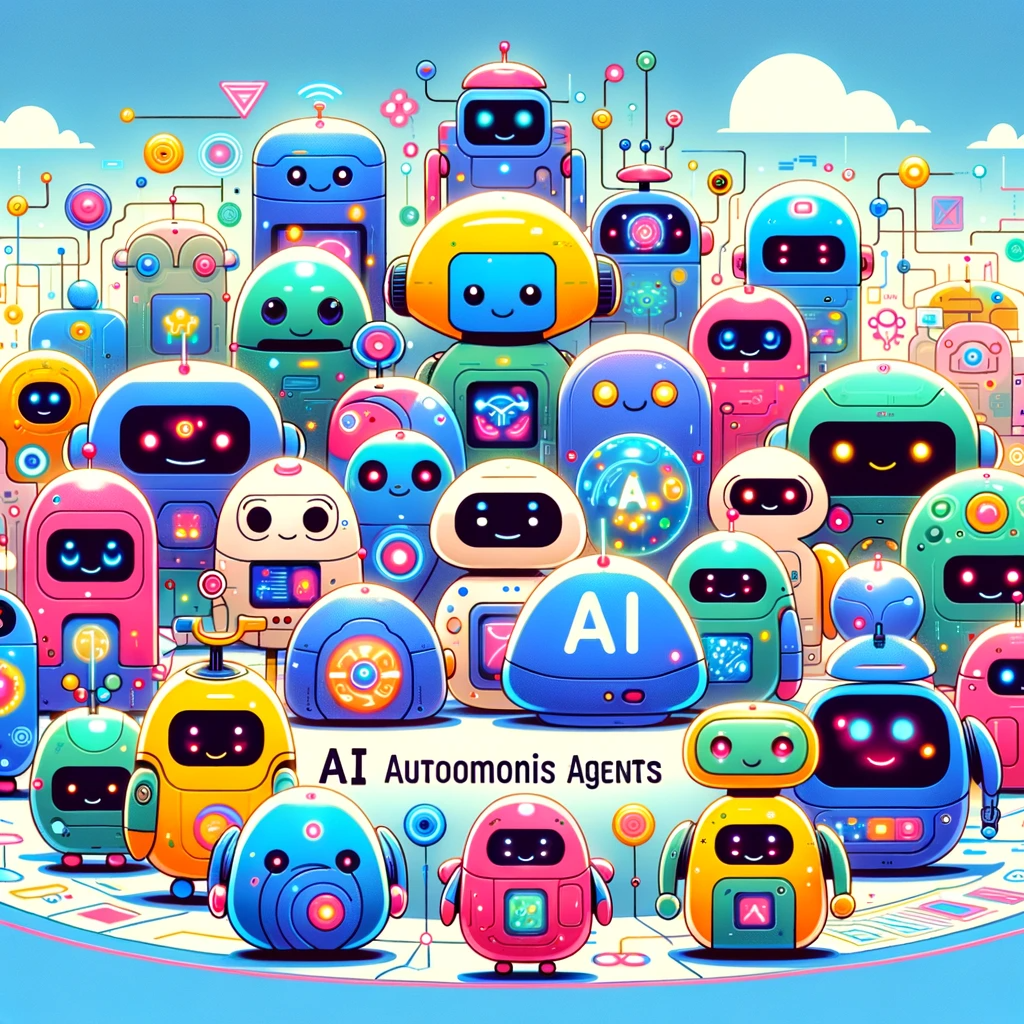
3 min read
Why We Built AgentHub
The journey of building AgentHub, from discovering AutoGPT to creating a platform for reliable and cost-effective AI automation.

Co-Founder/CEO
RPA and AI is a match made in heaven that will lead to a monumental explosion in productivity over the next few years. This explosion will be led those who understand both the problems and the AI tooling needed to solve those problems
January 23rd 2024

There is a small distinction between RPA and IPA although RPA can be used as an umbrella term for both. Robotic vs Intelligent Process Automation.
“RPA focuses on automating structured, rule-based tasks typically involving software interactions, like data entry or report generation. Intelligent Process Automation (IPA), on the other hand, combines RPA with AI to handle more complex, unstructured tasks that require decision-making and learning capabilities, like natural language processing or pattern recognition.” - Chat GPT (the paid version)
As the author of that quote can confirm, AI developments are changing work as we know it. The distinction between RPA and IPA existed because it's historically been difficult to integrate AI/ML into solutions. A team of researchers and engineers was needed to build anything remotely useful.
The rise of Large Language models has made it almost trivial to integrate AI into a product. This distinction between RPA and IPA will fade in the near future. I imagine the more general term of Intelligent Automation will become commonplace. I'll be using RPA as the umbrella term for the remainder of this post however.
It’s cheap: a well configured RPA solution can be 10-100x less expensive than the salary it would take for a human to perform. One employee can do the job of many if they have access to custom automation tooling.
It’s infinitely scalable: the same document processing automation that worked for 100 documents works for billions. Having a team to match this growth would require extremely expensive hiring, management headaches, outsourcing and potential drops in quality.
It can supercharge existing employees: It doesn’t necessarily mean replacing employees with robots but empowering the employees you already have to achieve 10x more. These are people you already know are qualified and trust to do the job but with access to much better tooling. Do more with the same.
If you’re unfamiliar with the craze of fully autonomous agents, let me summarize. In short, they’re ChatGPT but on a loop, attempting to iteratively define tasks for themselves that build towards a goal. You can give them a goal like "file my taxes", it’ll planing tasks like 'research local tax code', 'read tax code' etc. and continue looping until it achieves the goal. This is how many people think jobs will be replaced with AI. I disagree.
I’ve written more about this in a separate blog post here but in short, I don’t think general purpose Agents will be replacing any jobs in the short term. Two things are necessary to make an AI solution work for a business, it must be both cheap and reliable. Autonomous agents fail miserably at meeting both of these requirements.
RPA/IPA on the other hand can be ultra cheap and reliable if built correctly. They allow your AI to sit on very rigid guard rails so it can never veer off course. The infrastructure around the AI also allows you to minimize the amount of AI being used in the solution! AI is by far the most costly part of most workloads. Reducing its involvement does wonders for cost and reliability while still capturing the value of automation.
A well built RPA solution will outperform a general purpose agent any day.
People throw around the term “AI” as a buzzword when describing their product but what do they actually mean? Within the past year, they’ve been referring to the rise of Large Language Models (LLMs) specifically. The ChatGPTs of the world which appear to be the first generally intelligent systems ever built.
A surprising number of people I know have never tried ChatGPT let alone the premium version. The premium version of ChatGPT (it uses a much much smarter model, GPT4) is so smart it’s borderline unbelievable. It’s the closest thing to magic humans have ever built.
Human level reasoning is now infinitely scalable. I like to think of it like being able to text the smartest person you’ve ever known, except they respond near-instantly, have infinite time, never get bored and are somehow experts in every single field.
Now imagine how many billions of hours of work could be saved if you gave that friend's phone number to businesses and had them integrate it into all their workflows. Processing documents, researching, coding, data extraction, categorization etc. It’s a weird analogy but I think it works. Nothing will ever be the same, it’s only a matter of time before this genius friend of ours has their fingers in all work, everywhere, all at once.
To automate a problem you must understand it deeply. You must also understand the tools available to solve it. RPA developers/RPA Engineers are the piece that most businesses are missing, causing them to hire massive data entry teams or wasting thousands of hours of their employees' time annually.
You may think that some AI startup will address the problem but you’d be wrong. From our experience, the most expensive problems are extremely niche. Startups like to start from the top down, addressing the most widely felt problems first since that’s the best way to get users. This leaves all of those expensive, mind-numbingly specific tasks for big engineering teams or consultants to solve.
A pattern we’ve noticed recently are AI consultants/RPA developers using our tool to solve very expensive problems for their customers. They are the bridge between the problem and the tooling that we’ve been missing. They have the ability to completely immerse themselves in the issues. The automation is the painting and powerful RPA tooling is their brush.
My prediction is that the RPA/IPA/Automation Engineer position will skyrocket in popularity within the next 5 years. Once people realize what’s possible, it’ll be an annoying buzzword.
It’ll start with a wave of consultants automating millions of dollars of repetitive work away. Next, companies will realize they want more control and quicker iteration so they’ll hire Automation Engineers/developers in house. Those will grow into teams and organizations will slowly stop growing or slim down due to how efficient they are.
As these AI models get better, the possibilities will only grow. However, there will always be a need for someone to build the system that integrates those models into a business effectively. If all jobs will one day get replaced by AI (far in the future), RPA developers will be the very last to go.
Most existing RPA tools are panic rebranding and trying to ‘use AI’ wherever they can in their products. This is like cooking a dish and dumping all the seasoning on as the last step. Sure the product ‘uses AI’ but it will never be as capable as one built with AI throughout.
AgentHub is an AI-first RPA platform. Everything is built to maximize the value you can get out of Large Language Models while maintaining reliability and affordability. I encourage you to try it out if you’re interested. We build and ship new features quite literally every day. If you have anything you wished you were able to automate, let us know. We can make it happen.
Here is some more content related to Gumloop, LLMs and automation. Enjoy!

3 min read
The journey of building AgentHub, from discovering AutoGPT to creating a platform for reliable and cost-effective AI automation.

Co-Founder/CEO

3 min read
An exploration of the challenges and limitations of autonomous-agent frameworks, and how AgentHub is taking a different approach.

Co-Founder/CEO

8 min read
A guide to GPT function calling and 5 useful use cases

Co-Founder/CEO
Automate your complex business processes without writing a single line of code. No credit card required.